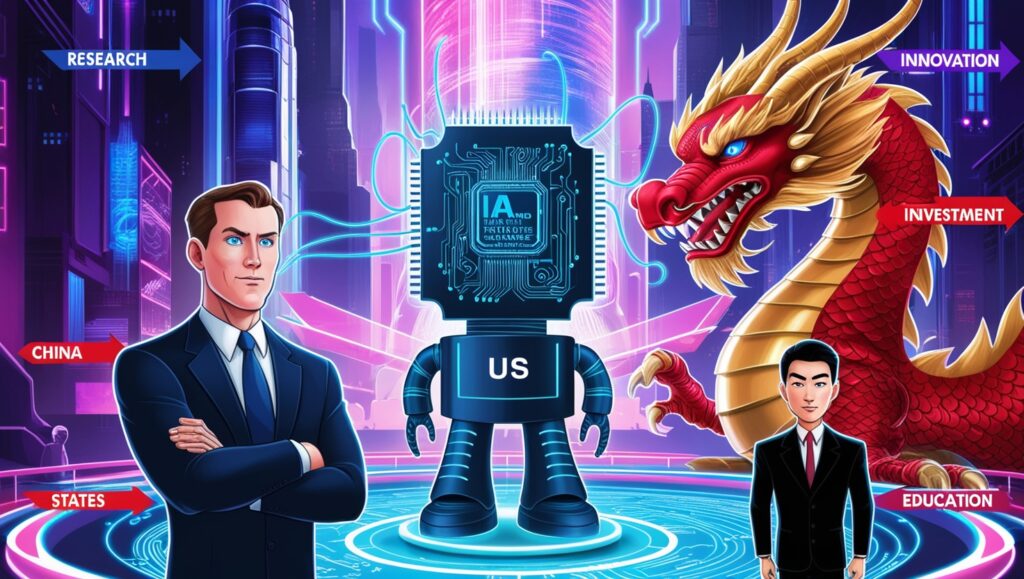Sam Altman, the CEO of OpenAI, has outlined a four-point strategy to assist the US in maintaining its lead in the global AI arms race.
Altman stated that his objective is to guarantee that the future of AI is one that is designed to help as many people as possible. In order to “make it happen,” he called on the US to head a “global coalition of like-minded countries.”
According to Altman’s ChatGPT, this is the TLDR: Whether the US and its allies will steer the global AI future toward the good of democracy or allow authoritarian regimes to develop it for their own power is the pressing dilemma of our time.
To this aim, Altman’s plan’s first action is to make sure that AI technology is properly protected. He stated that in order to guarantee that our alliance keeps the lead in both present and future models and permits our private sector to innovate, American AI companies and industry must develop strong security measures. According to him, these precautions ought to include developments in data center security and cyber defense that would stop hackers from stealing important intellectual property.
Next, construct the appropriate infrastructure. In order to develop the physical infrastructure—from data centers to power plants—that runs the AI systems itself, Altman urged American lawmakers to collaborate with the private sector.
It would help establish AI as a “new industrial base” in the US, he claimed, and help create more jobs. He added that funding is necessary for the US to produce a new generation of AI engineers, researchers, and inventors. As he put it, they are our real superpower.
Third, the US should set more rules around trade and cross-border information flow. That includes information on how the United States intends to apply export restrictions and foreign investment laws for the worldwide build-out of artificial intelligence systems, he said. This also entails defining guidelines for the global storage of materials including code, chips, and training data. It’s “not just about exporting technology, he said. “It is about exporting the ideals the technology upholds.
Lastly, Altman recommended that in order to ensure that developing countries are not left behind, the US should create a worldwide AI strategy. Altman suggested a number of solutions, one of which would be to establish an International Atomic Energy Agency for AI in order to encourage the technology’s peaceful application.
He proposed creating an investment fund that would combine funds from nations dedicated to developing artificial intelligence in a secure manner. He also proposed creating a nonprofit organization modeled after the Internet Corporation for Assigned Names and Numbers, or ICANN, with the goal of “maximizing access to the internet in support of an open, connected, democratic global community.”
China’s growing threat to US AI dominance is reflected in Altman’s commentary. As to the Stanford Institute for Human-Centered Artificial Intelligence, the United States emerged as the global leader in AI investment last year, having invested over $67 billion on the technology. China invested over $8 billion, ranking second. However, most analysts believe that figure will increase rapidly.
We can win here if we can bring about the democratic world, or small ‘d’ democratic world, Altman said.








